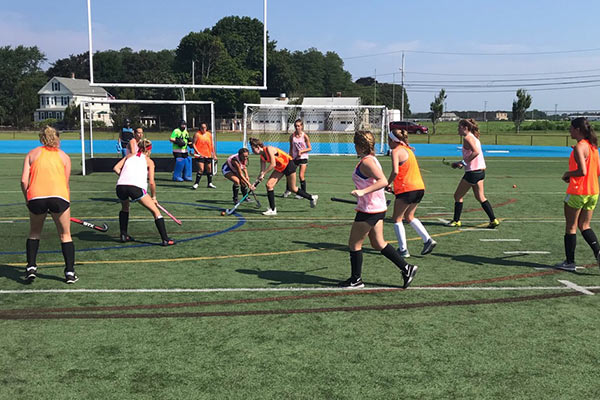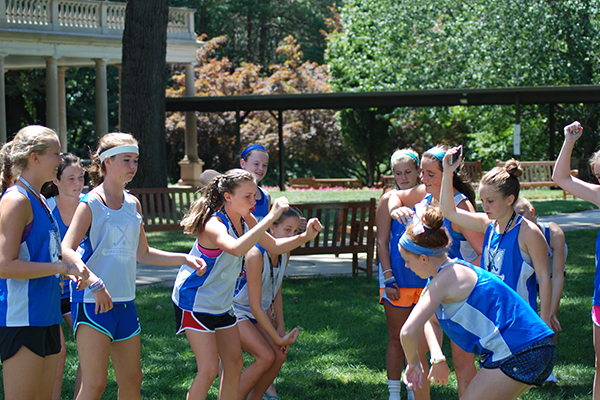Qualities for a Field Hockey Striker

Here at Revolution Field Hockey Camps, we realize the importance of developing players at all positions. After all, field hockey is a team sport, and while it’s crucial to have a handful of game-changers that can do damage at any particular time, it won’t be any good if the rest of the team can’t support them.
Center fielder Mike Trout is the perfect example of this. His statistics and accomplishments already make him an inner-circle Hall of Famer before his age-28 season. Yet, the Los Angeles Angels have made the playoffs just once since Trout’s first full season (2012). And in that one appearance, they were swept out of the playoffs in the first round.
The same kind of mindset comes into play for field hockey. Our camps boast some of the best and brightest minds in the sport on a yearly basis, and at places like our Maryland Field Hockey Camps, we always strive for as low of a camper-to-coach ratio as possible. That’s our main goal because everyone knows that the most learning happens when instruction is individualized and personal. This allows a young athlete to not only really sink their teeth into what a coach is saying, but to also digest it and take those lessons home in order to apply them the next time they’re on the field.
While every single field hockey position is important, we’re going to focus on strikers today. What qualities are needed to make not just a good, but a great striker? There are more than what’s below, but let’s start with these three.
Scoring Mentality
At the heart of it all, a striker’s main responsibility is to shoot and score goals for their team. So obviously, having a mentality that’s focused on scoring is going to be one of the top qualities for this particular field hockey position. When in this type of position, it’s important to be confident of your own abilities and not think so much about what might happen if you miss the shot. If you head into a goal-scoring situation thinking about that, you’re focusing on the wrong thing.
A great striker always believes they have a good chance of being successful, and when they’re not, they don’t let it bother them throughout the rest of the game.
Change of Pace
Great strikers also have great speed, enabling them to control the pace of any particular possession or game with their opponent. What’s even better than having elite speed is the ability to take control and change the pace at their own will. That makes it very difficult for the opposition to anticipate anything, which forces them to be on their toes and reacting to what happens constantly instead of being proactive.
Receiving Passes Under Pressure
The ideal situation is for a striker to receive a perfect pass from a teammate with plenty of space to get their feet underneath them and headed toward the goal, but that doesn’t happen all too often in competitive field hockey. It’s vital for strikers to develop the skills needed to not only receive a ball when space is limited thanks to pressure for an opponent, but to also remain strong and maintain possession of the ball past initially receiving it.


